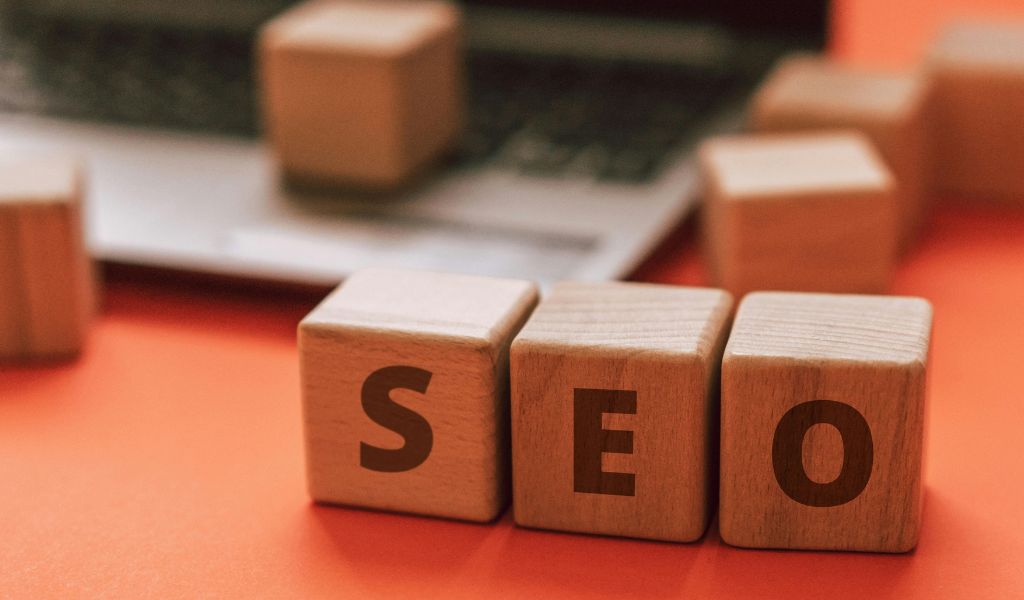How Law Firms In San Francisco Can Benefit from SEO
Feb 28, 2026

Feb 28, 2026

Feb 28, 2026

Feb 27, 2026

Feb 27, 2026

Feb 26, 2026

Feb 26, 2026

Feb 25, 2026

Feb 25, 2026
Sorry, but nothing matched your search "". Please try again with some different keywords.


Search Engine Optimization (SEO) has always been about adapting to change. You can follow its journey by starting from Google’s early keyword-matching days.
From there, it developed to the semantic search revolution and mobile-first indexing.
In 2025, Artificial Intelligence (AI) is the defining force behind how search engines rank content and how marketers optimize for those rankings.
What’s different now is that AI is no longer just a tool for SEO professionals. AI for SEO works as it’s also the brain driving search engine algorithms themselves.
This dual role means SEO strategies must align with AI both as a creator’s assistant and as the ultimate judge of content relevance.
AI has dramatically reshaped the search landscape, moving it towards a more personalized and intent-driven experience in the following ways:
Search engines like Google, Bing, and Baidu now use advanced machine learning models such as MUM (Multitask Unified Model) and GPT-based architectures to understand search intent across languages, formats, and contexts.
Expert comment: “In 2025, SEO is about optimizing for AI’s understanding of user intent, not just matching keywords,” says Laura Kim, Head of Search Intelligence at RankVision Labs.
Voice search, image recognition, and video content indexing have become mainstream. AI now processes queries that mix text, voice, and visuals, so brands must ensure their content is optimized across multiple formats.
Using AI for SEO has abundant benefits. AI tools enable the efficient scaling of SEO efforts across extensive web properties.
AI-powered tools analyze billions of search queries to uncover hidden keyword opportunities, clustering them by topic relevance and ranking difficulty. This goes beyond traditional keyword volume metrics, incorporating intent and competitive context.
Machine learning models predict which keywords are likely to trend based on seasonal behavior and emerging topics.
Additionally, it can also be based on real-time social signals. So, Marketers can build content in advance to capture traffic before competitors even notice the shift.
Natural Language Processing (NLP) models assess the semantic depth of content, suggesting ways to improve topical authority. AI can identify gaps in coverage, recommend related topics, and optimize structure for featured snippets.
AI is transforming technical SEO by automating tasks, enhancing data analysis, improving website performance, and in many other ways, as mentioned below:
AI crawlers now go beyond broken link detection, evaluating site architecture, Core Web Vitals, accessibility compliance, and structured data usage — all in one pass.
AI tools can automatically generate and validate schema markup for rich results, increasing click-through rates without manual coding.
AI interprets server log data to reveal how search engines crawl a site, identifying under-indexed pages and suggesting crawl budget optimizations.
AI in SEO significantly enhances personalized search and user intent by giving a significant boost to your SEO input:
Search results are now heavily influenced by individual user behavior, location, and preferences. AI-driven personalization means that ranking #1 for one user may not guarantee the same for another.
Some websites are experimenting with AI-generated dynamic content that changes headlines, CTAs, and even article sections based on the visitor’s intent profile.
For instance, an SEO team could integrate OverChat AI response generator into their workflow to analyze visitor behavior, predict search intent, and adapt on-page content dynamically — improving both rankings and conversion rates.
AI-powered tools can analyze vast amounts of data to identify high-quality backlink opportunities and personalize outreach. let’s see how:
AI analyzes backlink profiles, niche relevance, and domain authority to identify the most valuable link opportunities. This reduces manual outreach guesswork.
By mapping competitors’ backlink sources and comparing them with your own content coverage, AI suggests linkable assets you should create.
These are the two top success stories of AI in SEO. Let’s see what they talk about:
A fashion retailer used AI to identify micro-trends and created content targeting those keywords before competitors. Result: 40% increase in organic traffic in three months.
A SaaS company deployed AI to detect indexation issues caused by dynamic content. Fixing these errors improved their visibility for high-value commercial keywords by 25%.
Of course, you all saw it coming. Just like every good thing has its cons, AI in SEO has its own share of challenges. Let’s see what they are:
Search engines are becoming better at detecting over-reliance on AI-generated content without human refinement. So, pure machine output risks lower rankings.
Hyper-personalized SEO strategies must balance optimization with compliance to GDPR, CCPA, and other data privacy regulations.
If AI models are trained on biased datasets, the resulting search rankings may reinforce existing inequities in visibility.
Well, after all these speculations, I believe it’s worth knowing what the future will look like if we continue to use AI in SEO.
By 2030, conversational AI search assistants may replace traditional SERPs for many queries. So this means SEO will be about becoming the “spoken” answer.
AI could soon run SEO campaigns end-to-end. So, it does it all from keyword research to content creation and link building.
Additionally, it uses human oversight for brand alignment.
As AI-driven search expands to AR/VR environments and IoT devices, optimization will include 3D content and voice-enabled experiences.
Also, it might include even smart home integrations.
In 2025, AI will not just influence SEO. It is SEO. So, from understanding user intent to automating optimization tasks, AI is both the challenge and the solution for digital marketers.
The key for SEO professionals is to master AI tools and understand how search engine algorithms use AI.
Additionally, you can also create strategies that align with both human and machine audiences.
As Laura Kim summarizes: “SEO success now comes from thinking like the AI that runs search — and like the human who’s typing the query.”
Barsha is a seasoned digital marketing writer with a focus on SEO, content marketing, and conversion-driven copy. With 8+ years of experience in crafting high-performing content for startups, agencies, and established brands, Barsha brings strategic insight and storytelling together to drive online growth. When not writing, Barsha spends time obsessing over conspiracy theories, the latest Google algorithm changes, and content trends.
View all Posts
How Law Firms In San Francisco Can Benefit fr...
Feb 28, 2026
The Power Of Internal Linking For Restaurant ...
Feb 28, 2026
Can You Play The Google Zipper Game In 2026?
Feb 27, 2026
How To Make Money On Instagram? The EASIEST C...
Feb 27, 2026
AI Workflow Automation In The Era Of Google U...
Feb 26, 2026

